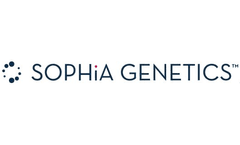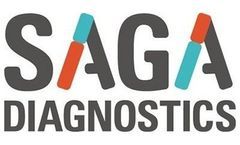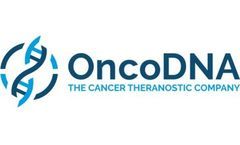Circulating Dna Articles & Analysis
8 news found
The testing works by isolating cell-free DNA (cfDNA) from blood plasma to uncover circulating tumor DNA (ctDNA). Isolating these DNA samples from a simple blood draw is less invasive than a traditional biopsy, helping to simplify patient monitoring and more quickly guide clinical decision-making. ...
Liquid biopsy testing offers an alternative to solid tumor testing by isolating cell-free DNA (cfDNA) from blood plasma, which may uncover circulating tumor DNA (ctDNA). ...
The rapid, tumor-naïve plasma based test is designed to detect circulating tumor DNA (ctDNA) in the blood of patients with early stage colorectal cancer (CRC) after curative intent surgery. xM was developed using the company’s multimodal database and advanced machine learning algorithms to accurately classify tumor fragments from non-tumor fragments, ...
ByTempus
SAGA Diagnostics AB is seeking a talented and highly motivated Bioinformatics Scientist with strong interest in advancing our mission to revolutionize cancer diagnostics through proprietary ultrasensitive technologies that measure circulating tumor DNA (ctDNA) in minimally-invasive “liquid biopsies” such as a simple blood sample. ...
Using our molecular counting technology, the assay provides absolute quantification of methylated circulating tumor DNA (ctDNA) burden. The purpose of the assay, when it becomes clinically available in Q1 2023, will be to enable clinicians to monitor patients’ responses to therapies, including in late-stage cancers for which minimal residual disease (MRD) ...
” Full List of Guardant Health Presentations: Impact of postoperative integrated genomic and epigenomic signatures of circulating tumor DNA (ctDNA) on recurrence in resected colorectal cancer: Initial report of a prospective ctDNA monitoring study COSMOS-CRC-01 (Abstract 168) Clinical utility of microsatellite instability (MSI-H) identified on liquid ...
As its name implies, the OncoFOLLOW™ test follows the progression of the mutations that drive a patient’s cancer, by analyzing fragments of the tumor DNA that circulate in the patient’s bloodstream. “OncoDNA is delighted to work alongside Bergonié Institute to provide access to biomarker testing for routine cancer care. ...
While Radiomics will lead the radiological characterization of the cases included in the SALMON study through its proprietary advanced technology based on the extraction of quantitative information from DICOM scans, OncoDNA will generate comprehensive OncoKDM reports for the biological characterization and genetic sequencing of NSCLC patients via tissue and liquid biopsy, aimed at the analysis of ...






